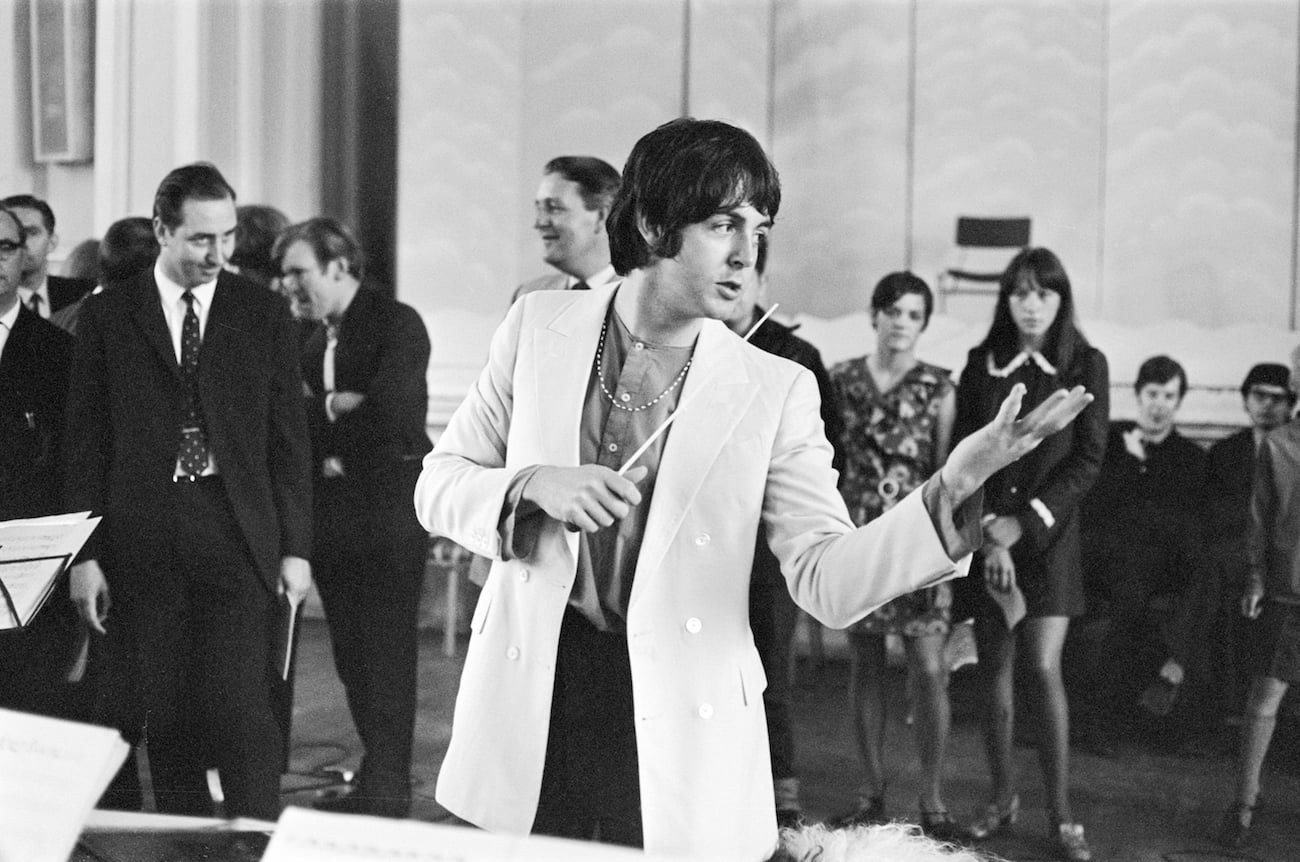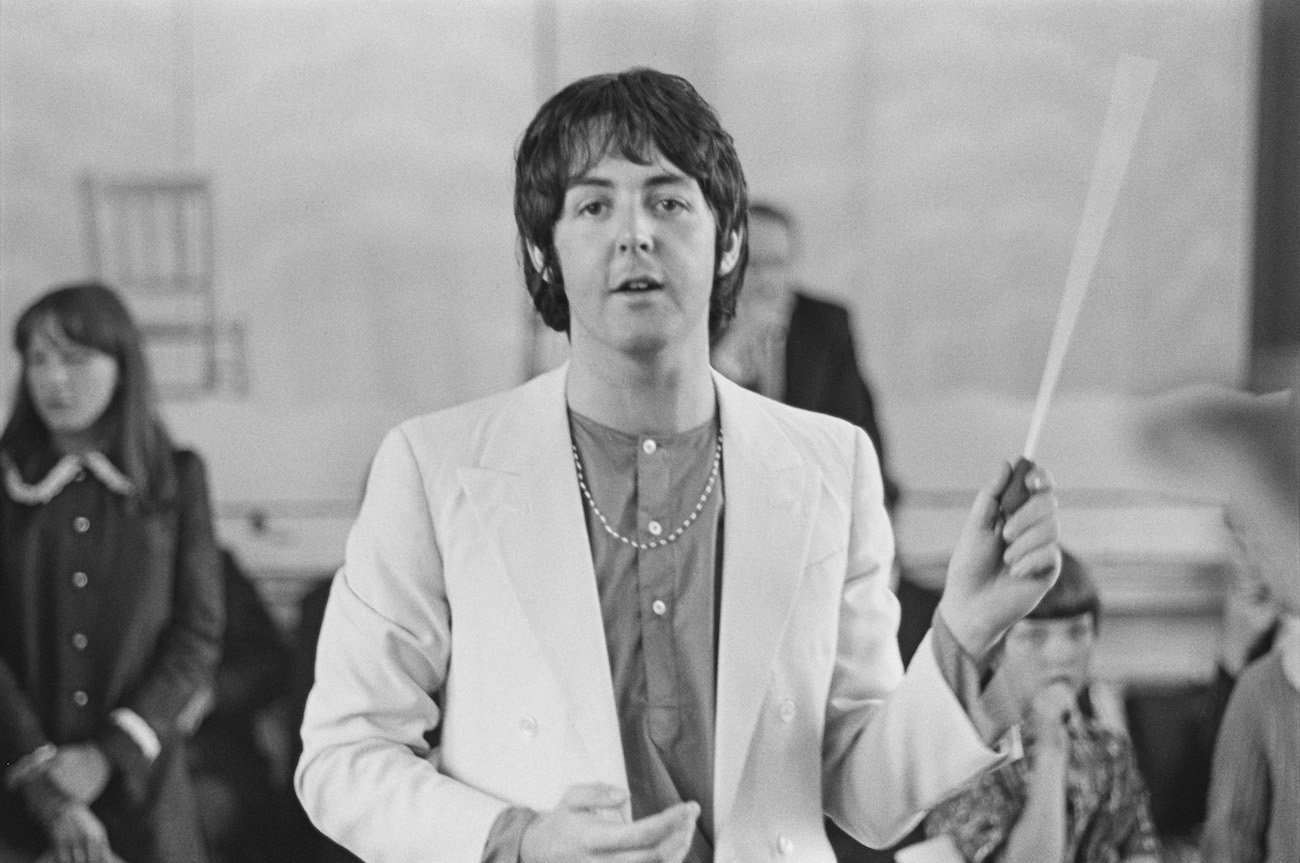
Paul McCartney Said Shakespeare Inspired the Final Lyric in ‘The End’
Paul McCartney used his extensive knowledge of literature, specifically William Shakespeare, to help him write the last lyric of The Beatles‘ “The End.” He wanted the final lyrics of the song to be poetic. Something memorable had to sign The Beatles off just as Shakespeare’s lines closed out his epic plays.

The Beatle loves literature because of his English teacher
In The Lyrics: 1956 to the Present, Paul speaks about every song he’s ever written. Those songs might not have come as easily or creatively if not for Paul’s literary heroes. In his book, Paul speaks of Dylan Thomas, Oscar Wilde, Allen Ginsberg, French symbolist writer Alfred Jarry, Eugene O’Neill, and Henrik Ibsen.
The book’s editor, Paul Muldoon, wrote in his introduction that Paul’s “capacity for textual analysis” comes from having a curious mind. “A young McCartney would go to the Royal Court theatre in Liverpool and eavesdrop on other people’s conversations to pick up opinions, criticisms and turns of phrase,” Penguin Books wrote.
However, Paul’s appreciation of literature was first sparked by his English teacher at the Liverpool Institute High School for Boys. His name was Alan Durband.
“Alan Durband had a very good education himself,” Muldoon wrote. “He was educated at Cambridge and that was extended to his own classroom. What Paul was exposed to there was really quite phenomenal.”
“He inspired my love of reading and opened things up for me so much that I came to live for a while in a fantasy world drawn from books,” Paul wrote.
Durband undoubtedly showed Paul another famous literary figure, Shakespeare.
Paul McCartney said Shakespeare inspired the final lyric in The Beatles’ ‘The End’
In Lyrics, Paul wrote that he’s “fascinated by the couplet as a form in poetry.”
He explained, “When you think about it, it’s been the workhorse of poetry in English right the way through. Chaucer, Pope, Wilfred Owen. I was particularly fascinated by how Shakespeare used the couplet to close out a scene, or an entire play.
“Just taking a swing through Macbeth, for example, you’ll find a few humdingers, like: ‘Receive what cheer you may: The night is long that never finds the day.’ Or ‘I go, and it is done; the bell invites me/ Hear it not, Duncan; for it is a knell/ That summons thee to heaven or to hell.'”
Paul explained this was Shakespeare’s way of saying, “That’s it, folks.” The Beatles’ song “The End” was their way of saying the same. “And in the end the love you take/ Is equal to the love you make.”
Paul wrote, “This is one of those couplets that can keep you thinking for a long time. It may be about good karma. What goes around comes around, as they say in America.”
Paul thinks he would’ve pursued a career in literature
According to Paul, he was more into literature than his bandmate, John Lennon. He wrote that John “never had anything like my interest in literature, though he was very keen on Lewis Carroll and, in particular, Winston Churchill. His Aunt Mimi had lots of books by Churchill in the front parlour. Not a bad basis for an education.”
If he had never joined The Beatles, Paul thinks he would’ve pursued a career in literature.
“I often muse upon what might have happened, had I not ended up in a band that rather took over my life,” he said. “I wonder about the path I thought I was on with my A level in English literature and where that might have led me.”
We’re glad he got to use his two passions in life. Paul joined a band and used his love of literature to write his songs, including “The End.”


